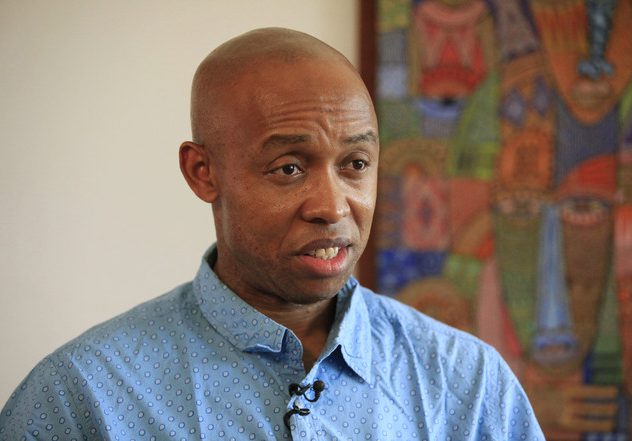Nigeria’s agricultural sector faced significant challenges in September from devastating floods that ravaged vulnerable communities to food insecurity concerns in farming communities.
Within the month, the floods in Anambra and Borno states prompted panicky farmers to harvest crops prematurely, raising concern about food availability.
The Executive Secretary of the Anambra State Emergency Management Agency, Paul Odenigbo, said some farmers in the state embarked on premature harvesting of crops to beat impending flood disaster.
Mr Odenigbo explained that many farmlands had already been submerged, following increased water levels.
“The water level has been on the increase and is expected to rise more, following activities from some neighbouring countries,” the official said.
 An aerial view of the flood in Maiduguri
An aerial view of the flood in Maiduguri“These translate to more flood waters in Nigeria through the river channels. Some farmers have started harvesting their crops prematurely and we are calling on those living in the riverine areas to relocate to higher grounds whenever they notice an emergency increase in the water level.”
In Borno, the National Commission for Refugees, Migrants and Internally Displaced Persons (NCFRMI) expressed fear that the recent flooding in Maiduguri, the State capital, may increase food insecurity.
Nigerians need credible journalism. Help us report it.
Support journalism driven by facts, created by Nigerians for Nigerians. Our thorough, researched reporting relies on the support of readers like you.
Help us maintain free and accessible news for all with a small donation.
Every contribution guarantees that we can keep delivering important stories —no paywalls, just quality journalism.
Tijani Ahmed, the federal commissioner of the commission, who expressed this concern at a media briefing in Abuja, noted that about 40 per cent of the farmlands in Maiduguri had been submerged ahead of the harvest season, adding that the destruction of the crops is likely to increase food insecurity, already affecting over a million people.
Meanwhile, the Nigerian poultry industry is struggling with poor egg composition due to inadequate feed storage.
The Poultry Association of Nigeria (PAN) chairperson in Lagos State, Mojeed Iyiola, in an interview with the News Agency of Nigeria (NAN), noted that lately, eggs have looked abnormal, with the egg yolk bigger than the albumen (egg white), raising concerns. He, therefore, advised poultry farmers to give their birds what they needed at the right time.
 Eggs placed in a basket, used to illustrate a story
Eggs placed in a basket, used to illustrate a storyOn its part, the Nigeria Customs Service (NCS), Federal Operations Unit (FOU), Zone C, destroyed 1,015 sacks of dried donkey meat and skin in Edo.
A statement by the Public Relations Officer, NCS, FOU, Zone C, Jerry Attah, said that the items were part of contraband seized in the zone between 15 July and 15 September.
In Kwara, the state government distributed 42,000 bags of fertiliser to farmers, as part of efforts to boost food production.
At the federal level, indications emerged within the month that Nigeria is closer to establishing a Livestock Ministry, following the submission of the Attahiru Jega Committee report. President Bola Tiinubu received the report from the committee he set up to reform Nigeria’s livestock sector.
The committee is chaired by Mr Tinubu but co-chaired by former electoral chief Attahiru Jega, who presides over its meetings in Mr Tinubu’s absence. Part of the committee’s mandate is to establish modalities for the establishment of a Ministry of Livestock Development. The government hopes that the ministry will lead to increased livestock production, improved dairy production, and a reduction in the violence between farmers and herders in Nigeria.
 Cattle used to illustrate a story
Cattle used to illustrate a storyIn the same vein, to address food insecurity, Abubakar Kyari, minister of agriculture and food security, said the Nigerian government is investing in dry season farming to address nutrition and food insecurity in the country. Part of the measures to curtail the ravaging food crisis in the country, the minister said, include making available to farmers improved seedlings and fertilisers to boost farm productivity.
Meanwhile, the Bill and Melinda Gates Foundation pledged $600,000 (about N900 million) to support flood victims in Borno State and to revive health and agriculture initiatives in Nigeria.
A statement issued by Stanley Nkwocha, a senior special assistant to President Bola Tinubu, noted that the foundation announced the donation while meeting with Nigeria’s Vice President Kashim Shettima on the sidelines of the 79th United Nations General Assembly in New York.
“To hasten relief efforts for victims of the devastating floods, as well as for health and agricultural sectors’ reforms, the Nigerian government has secured a $600,000 relief fund and commitments from the Bill and Melinda Gates Foundation,” the statement said.
 Nigeria’s Vice President Kashim Shettima on the sidelines of the 79th United Nations General Assembly in New York
Nigeria’s Vice President Kashim Shettima on the sidelines of the 79th United Nations General Assembly in New YorkThe statement disclosed that during the meeting led by the Foundation’s Head of Global Development Programme, Christopher Elias, an additional $5 million grant was also approved for Lagos Business School and partners to develop the agricultural economics of industrial cassava.
Unfortunately, Nigeria loses 50 per cent of its agricultural produce post-harvest, according to the Food and Agriculture Organisation (FAO). The FAO explained that food waste poses significant challenges to Nigeria’s agricultural sector, impacting food security, economic growth, and environmental sustainability.
Following the steep fall in tomato prices across Nigerian markets and the accompanying losses recorded by farmers, the President of the All Farmers Association of Nigeria (AFAN), Ondo State, Abayomi Monilare, counselled farmers on best practices to mitigate the loss.
He suggested that proper calculations at the time of cultivation would help farmers avoid the traps of losses during the current season.
“Farmers must learn to do some calculations and determine accurate planting periods if they will make tomato farming profitable. With the rains when tomatoes are easily cultivated, the prices are bound to drop because of the volume of production,” he said.
Within the month, PREMIUM TIMES also reported how the decline in palm wine production has led to scarcity and adulteration.
“The current generation feels palm wine is a bad thing. We don’t want to do what we met our parents doing again. They consider them bad because of what people read in the books,” Aniediabasi Edet, a palm wine tapper for 65 years in Mbiabong Itam, Itu Local Government Area of Akwa Ibom State told PREMIUM TIMES.
Food security concerns are, however, not peculiar to Nigeria. To address food security concerns across Africa, experts met in Rwanda for the annual Africa Food Systems (AFS) Summit to advance conversation on transformative agricultural practices and policies to achieve sustainable food systems across the continent.
Some of the experts and farmers who spoke at the five-day summit argued that improved finances and technology are potent ways to transform the challenging agricultural landscape in Africa.
Support PREMIUM TIMES' journalism of integrity and credibility
At Premium Times, we firmly believe in the importance of high-quality journalism. Recognizing that not everyone can afford costly news subscriptions, we are dedicated to delivering meticulously researched, fact-checked news that remains freely accessible to all.
Whether you turn to Premium Times for daily updates, in-depth investigations into pressing national issues, or entertaining trending stories, we value your readership.
It’s essential to acknowledge that news production incurs expenses, and we take pride in never placing our stories behind a prohibitive paywall.
Would you consider supporting us with a modest contribution on a monthly basis to help maintain our commitment to free, accessible news?
TEXT AD: Call Willie - +2348098788999




















 English (US) ·
English (US) ·